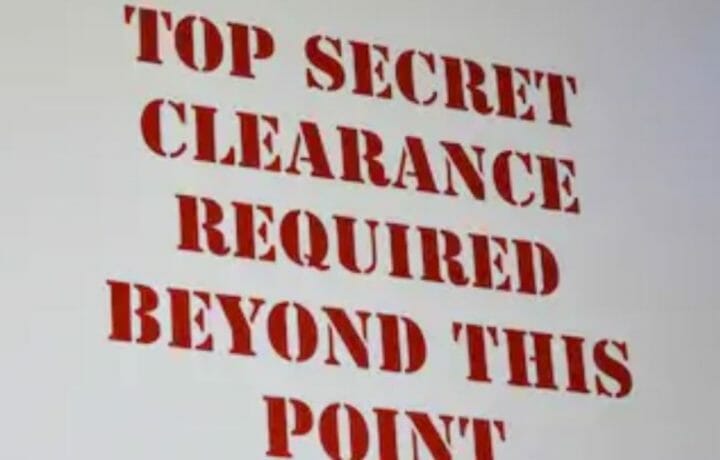The House Permanent Select Committee on Intelligence’s Subcommittee on Strategic Technologies and Advanced Research (STAR) released a report calling for reforms to strengthen and empower the intelligence community’s (IC’s) scientific and technological research and development activities (S&T R&D). This included calls to accelerate security clearance reform, and reconsider whether all IC personnel require security clearance.
The report – titled Rightly Scaled, Carefully Open, Infinitely Agile: Reconfiguring to Win the Innovation Race in the Intelligence Community – also recommended that to ensure that the right people are being hired for these crucial government positions, efforts be made to broaden targeted hiring authorities, to expand retention incentives, to create a STEM (science, technology, engineer, mathematics) fellowship program in the IC, to engage with educators, and to even fix immigration to obtain and keep talent.
Aggressive Challenges
The report highlighted that the United States continues to faces aggressive challenges to its historic leadership in science and technology, and as a result, the IC finds itself increasingly reliant on external partnerships to maintain its edge.
“In order to maintain dominance in technological advancement in the intelligence field and beyond, we need to leverage our greatest strengths as a nation,” said STAR Subcommittee Chairman Rep. Jim Himes (D-Conn.) via a press release.
“There is no country on Earth that has more raw talent and entrepreneurial spirit across the private and public sectors than the United States,” Himes added. “If we can make the investment now to harness that quintessentially American, innovative energy, and nurture it an open and agile environment, we will continue to lead. But there’s no time to lose as our adversaries are nipping at our heels.”
The subcommittee has conducted hearings, oversight, and briefings to guide the findings and recommendations in this report for more than a year and has adopted several recommendations into the Intelligence Authorization Act (IAA), which focus holistically on funding; partnerships and relationships; workforce development; and norms and standards.
STAR Recommendations
The subcommittee has offered specific recommended changes that include:
- Reopen the Office of Technical Assessment in the House of Representatives;
- Build and improve relationships based upon mutual trust between the IC and the private sector;
- Conduct a pilot of the IC’s Public-Private Talent Exchange;
- Engage with educators to ensure U.S. academic institutions can teach the workforce of the future;
- Leverage and nurture existing collaborations with the federal labs; and
- Mandate the IC’s prioritization of R&D needs, centralize oversight and decision-making responsibilities for R&D, *and regularly update Congress on its progress toward those priorities.
Areas of Recommended Study
The STAR Subcommittee also recommended that a number of areas be considered for further study. Those include:
- The creation of a fellowship program akin to the Presidential Management Fellowship that is oriented towards recent science, technology, engineering, and math (STEM) discipline graduates;
- The IC’s relationships with the federal labs and foreign partners to enhance collaboration on S&T R&D;
- The IC’s hiring authorities and engaging Congress as to whether further authorities are warranted to enable the IC to expand its STEM workforce; and
- The IC’s handling of the COVID-19 pandemic and identification of positions that can be performed outside of secure facilities.
- Accelerated Security Reform
Among the IC areas suggested for reform were to the security clearance process, and the Subcommittee noted that until recently, the average security clearance process was cumbersome, time-consuming, and often backlogged. It was found that it could take two years to be completed, while some candidates waited as long as five years to gain approval.
Progress has been made in reducing the backlog, from its peak of more than 725,000 open investigations to just 205,000 as of July. The processing time for Top Secret clearances has been cut by more than half – from 411 days to 79 days.
Still, because the security clearance process can stretch on for years, there is a valid concern that the slow progress could dissuade many highly qualified applicants from even embarking on a career in the IC space, including many individuals with STEM backgrounds. The Subcommittee called for a way to provide opportunities for STEM-oriented recruits to begin work before receiving their clearances, which could allow the IC to retain more candidates throughout the clearance process.
The Subcommittee also said it believed that a Top Secret clearance is not necessary for all IC personnel to perform their job responsibilities, and for S&T R&D in particular, much work can be completed without even a Secret-level security clearance.
“Taken together, the threats facing our country – from an ascendant China and intractable Russia, to climate change and pandemics, to new disputes in space and cyberspace – are daunting, and require the Intelligence Community to be forward-thinking and pragmatic,” said House Intelligence Committee Chairman Rep. Adam Schiff (D-Calif.).
“That’s why it’s absolutely critical that the IC develop common solutions rooted in technology and innovation,” Shiff added. “By making the right investments today – in people, programs and partnerships – we will strengthen our future security.”


